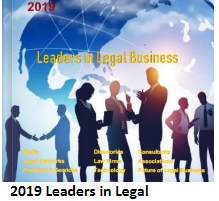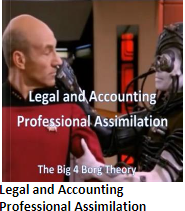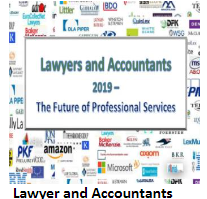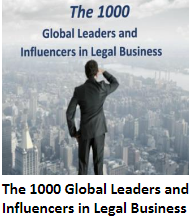Andrew Perlman & Janet L. Jackson Special Advisor to ABA; Managing Director, ABA Center for Innovation
Andrew Perlman is Dean and Professor of Law at Suffolk University Law School. He is a special advisor to the ABA Center for Innovation and previously served as vice chair of the ABA Commission on the Future of Legal Services. Janet L. Jackson is the managing director of the ABA Center for Innovation.
__________________________________________________
The legal services marketplace is rapidly evolving, and bar associations must embrace those changes or risk irrelevance. By developing new educational programs and initiatives, facilitating the profession’s use of cost-saving tools, accelerating solutions that address the access to justice crisis, and welcoming other professionals who can improve how legal services are delivered and accessed, the bar can play an essential leadership role during a time of significant change.
Educational
Programs and Initiatives
Continuing Legal Education
Continuing legal
education (CLE) programs offer a conventional opportunity to educate members about
important changes to the legal marketplace. Florida has gone even farther.[2] In
September 2016, the Florida Supreme Court took the unprecedented step of
unanimously approving a rule requiring Florida lawyers to take
technology-related continuing legal education courses. The rule requires
lawyers to take a minimum of three hours of technology-related CLE courses
every three years. The rule went into effect on January 1, 2017.
Innovation Clearinghouses
Bar associations
can publicize information about impactful and replicable innovations. The ABA’s new Center for Innovation,
established in September 2016,[3] is
about to launch an Innovation Clearinghouse that will spotlight new approaches
to the delivery of legal services in a wide range of areas, such as court
innovations, legal technology, in-house legal departments, and legal aid.[4]
These kinds of efforts can shed an important light on valuable projects and
demonstrate the role of bar associations in disseminating knowledge about
critical legal services innovations.
Special Events
Bars can develop
special events and programs to help spread the word about innovative tools and
policy changes. The ABA Center for Innovation recently
teamed with the National Conference of Bar Presidents on a program that helped
lawyers, judges, and the public learn more about the significant problems
associated with court-imposed fines and fees as well as the innovative
solutions that have been developed to address those problems.[5] The Center also organized an
Innovation Spotlight event, consisting of 10 speakers from different parts of
the legal industry who delivered short presentations on their impactful
solutions to pressing legal services needs. Numerous similar programs are
hosted or sponsored by bar associations every year, and those events can help
members and the public learn about critical problems and innovative solutions.
Fellows Programs
The ABA Center
for Innovation has developed two types of fellows programs to help the
profession and individual members respond to new realities. NextGen Fellows are
relatively recent law school graduates who spend a year at the Center, receive
a salary, learn about innovative approaches to legal services delivery, and
advance a project designed to address a critical legal services delivery
problem.
Innovation
Fellows are seasoned professionals who spend more limited time at the Center to
work on a discrete project. These professionals often lack the time and resources needed to
innovate, and a two- to three-month fellowship provides them with what they
need to bring their ideas to full potential. For instance, the North
Carolina State Bar, North Carolina Supreme Court, and North Carolina
Administrative Office of the Courts joined together to sponsor an Innovation
Fellow to come to the Center for training and to assist with efforts to
establish a Center for Innovation in North Carolina.
In each case,
the Center matches fellows with available resources within and outside the ABA
to help the fellows appropriately plan and develop impactful projects.[6]
Moreover, each fellow participates in a boot camp that involves training in the
people, process, and technology skills that are needed to transform the
delivery of legal services. The Center
expects to make the boot camp more widely available in the coming months.
In the meantime,
fellows are taking on a wide range of projects, such as developing an app to
help pro se litigants navigate local civil procedure, assisting low- and
moderate-income renters in knowing their rights, and exploring how blockchain
technology can be used in the fines and fees arena to benefit the public.
The Center for
Innovation seeks to expand the fellows program in various ways, such as by
hosting more fellows from state and local bar associations. The bottom line is
that bar associations can provide these kinds of opportunities to help the
industry adapt to the 21st century legal marketplace and facilitate
work on cutting-edge projects.
Futures Commissions
Bar associations have an important role to play in educating their members and the public about systemic legal service delivery issues and large-scale solutions. Many bars are establishing futures commissions or have recently undertaken such efforts.[7] In 2016, the ABA Commission on the Future of Legal Services completed a two-year review of the legal services industry and developed a major report that identifies existing problems and recommends a wide range of solutions.[8]
Facilitating
the Profession’s Use of Cost-Saving Tools
Bar
associations can build websites and other resources to help members find
appropriate tools for their practices.
During her ABA President-Elect year, Linda Klein met with lawyers in
various small and mid-size communities across the country. One message she
heard was that lawyers, particularly solo and small firm practitioners, are
pressed for time and do not know where to find the basic technology that would
make their practices more efficient. To help them, the ABA developed ABA
Blueprint.[9]
Through an expert system, ABA Blueprint helps lawyers identify the technological tools that an individual lawyer needs. It also provides access to consultants to answer questions about recommended products. The ABA will roll out Blueprint 2.0 in the fall of 2018, which will provide even more tools for solo and small firms.
Accelerating
Solutions that Help to Close the Access to Justice Gap
Bar associations
can demonstrate their relevance to the public by building tools that address
the ever-growing access to justice gap. In 2016, floods ravaged the areas in
and around Baton Rouge, Louisiana, yet flood victims often lacked the
documentation of home ownership that is required to establish eligibility for
FEMA and state recovery disaster assistance. A multifaceted campaign called “FloodProof”
emerged last year to address these needs, and the Center stepped up to play an
important role.
Working with
Stanford Law School, Southeast Louisiana Legal Services (SLLS), Louisiana State
University Law School, and Louisiana Appleseed, the Center created a mobile app
to help Louisiana flood victims gather information and documents needed to
establish home ownership and complete disaster relief applications. The Center
developed a web-based version of FloodProof and explored efforts, in
cooperation with the ABA Standing Committee on Disaster Response and
Preparedness [10] and
Louisiana Appleseed, to drive greater awareness and use of these new technology
resources. Through a collaborative effort with SLLS, LSU Law School, Southern
University Law School, Baton Rouge Bar Association, Louisiana Appleseed, and
local and state government, flood victims are being introduced to both the
mobile app and web platform to assist in recovery. The Center is now
replicating the effort in other states.
The Center is collaborating on similar projects in many different areas, such as the creation of a web-based tool to direct victims of hate crimes or bias incidents to available resources, an app for law enforcement that would help translate Miranda warnings into other languages, and the pairing of legal tech companies with legal aid offices so that cutting-edge tools can enable frontline legal services lawyers to reach more clients. In short, bar associations can marry their networks and substantive expertise with innovative thinking to have a positive impact on how the public accesses essential legal services.
Embracing Other Professionals
Embracing
change means welcoming a wide range of professionals who can contribute in
various ways. The Center’s volunteer leaders include people who have innovated
outside of the legal industry; in fact, one of the Center’s Innovation Fellows
was a court administrator who was not a lawyer.
Recognizing the role of other kinds of professionals also means an openness to rethinking the regulation of legal services. In 2016, the ABA adopted Model Regulatory Objectives for the Provision of Legal Services,[11] and one of the explicit rationales for doing so was a recognition that various kinds of professionals are playing an important role in the delivery of legal services. The Model Regulatory Objectives set out some basic principles to help regulators and bar associations think through their regulatory stances in light of these developments.
Conclusion
At an inflection point for the legal industry, bar associations must be at the vanguard of change rather than a bulwark against it. If bars embrace their role as change agents, they will ultimately serve both their members and the public more effectively.
[1] Howard Wasserman, Legal
Education in the 21st Century, PrawfsBlawg (Feb. 21, 2017), http://prawfsblawg.blogs.com/prawfsblawg/2017/02/legal-education-in-the-21st-century.html.
[2] Victor Li, Florida
Supreme Court Approves Mandatory Tech CLEs for Lawyers, ABA J. (Sept. 30,
2016), www.abajournal.com/news/article/florida_supreme_court_approves_mandatory_tech_cles_for_lawyers.
[3] ABA Center for
Innovation, www.abacenterforinnovation.org.
[4] Innovators, ABA Center for Innovation, http://abacenterforinnovation.org/resources/innovators.
[5] Fines and Fees,
Annual Meeting 2017, ABA Center for
Innovation, https://www.americanbar.org/news/abanews/aba-news-archives/2017/08/video_highlightscr.html.
[6] Meet Our Fellows,
ABA Center for Innovation, http://abacenterforinnovation.org/fellowships/meet-our-fellows.
[7] Resource Pages,
American Bar Association, www.americanbar.org/groups/bar_services/resources/resourcepages/future.html.
[8] Report on the
Future of Legal Services in the United States, ABA Commission on the Future of Legal Services (2017), http://abafuturesreport.com.
[9] ABA Blueprint,
www.abablueprint.com.
[10] ABA Committee on
Disaster Response and Preparedness, https://www.americanbar.org/groups/committees/disaster.html.
[11] Model Regulatory Objectives for the Provision of Legal Services (2016), https://www.americanbar.org/content/dam/aba/directories/policy/2016_hod_midyear_105.docx.
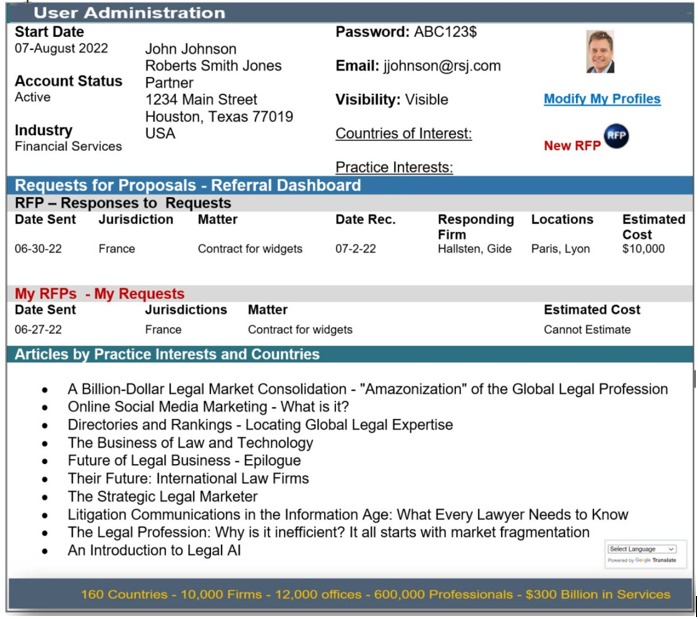



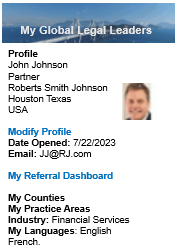
 Software
Software Law
Law Legal
Legal
